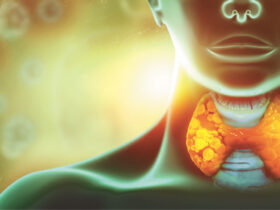By Susan Clyne, DO, Internal Medicine at Millennium Physician Group
 Women’s health encompasses more than just annual checkups and routine screenings. It’s a lifelong commitment to understanding the changes in your body and taking proactive steps to protect your wellbeing. From hormonal fluctuations to heart health, women experience unique challenges and transitions that evolve as they age. Knowing what to watch for – and when to take action – can make all the difference in maintaining your health and quality of life.
Women’s health encompasses more than just annual checkups and routine screenings. It’s a lifelong commitment to understanding the changes in your body and taking proactive steps to protect your wellbeing. From hormonal fluctuations to heart health, women experience unique challenges and transitions that evolve as they age. Knowing what to watch for – and when to take action – can make all the difference in maintaining your health and quality of life.
The Foundations of Women’s Health
While women tend to live about six years longer than men, longevity doesn’t always equate to a healthier life. Women face specific risks, such as heart disease, osteoporosis, and breast cancer, that can affect both mortality and quality of life. Managing these risks often begins with preventive care and regular
conversations with your healthcare provider.
It’s also important to address the day-to-day aspects of wellness. For women, that ranges from premenstrual symptoms to birth control to fertility and menopause. Each stage of a woman’s life brings new physical and emotional changes, and with the right care and
education, women can continue to thrive at every age.
The Heart of Women’s Health
Heart disease remains the leading cause of death for women in the United States. Yet, many women may not realize their symptoms can differ from those seen in men.
When it comes to a heart attack, women often describe chest pain as a tightness or pressure. It’s also possible for women to not experience chest pain, but have other symptoms like:
• Shortness of breath
• Nausea or vomiting
• Pain in the upper body, including the back and jaw
• Lightheaded or dizziness
• Sweating
• Unusual fatigue
• Heartburn
Knowing your blood pressure, cholesterol, and blood sugar levels and discussing them with your healthcare provider can help identify risk factors early. Managing these levels, as well as other underlying conditions, can reduce your risk. That includes taking care of your mental health and stress, which can impact heart health just as much as physical conditions.
Cancer in Women
Cancer remains one of the leading health concerns for women, with one in eight women developing breast cancer at some point in their lifetime.
Fortunately, early detection and proactive screenings can save lives. Your healthcare provider can
personalize your care plan based on your age, health history, and lifestyle, but generally:
• Annual mammograms begin at age 40.
• Cervical cancer screenings start at age 21.
• Colon cancer screenings start at age 45.
Navigating the Menopausal Transition
Menopause is a natural stage of life that typically occurs around age 52, marking the end of a woman’s menstrual cycle. The years leading up to it, known as perimenopause, can bring a variety of changes to your body, with symptoms such as:
• Hot flashes
• Mood shifts and forgetfulness
• Difficulties sleeping
• Changes in vaginal health
• Weight gain
• Drier, thinner skin and hair
These symptoms occur as estrogen and progesterone levels fluctuate and eventually decline. While some women may not experience symptoms, others can have menopausal symptoms for several years.
Talk to your healthcare provider about effective treatments and lifestyle changes that can help manage your menopausal symptoms.
Bone Health in Women
As women age, maintaining mobility becomes increasingly important. Conditions like osteoporosis – a disease that weakens bones and makes them more prone to fracture – affect women at higher rates than men. Women over 50 are about four times more likely to develop osteoporosis, mainly due to hormonal changes during menopause.
Early bone loss often shows no symptoms, but as the condition progresses, you may notice back pain, loss of height, or a stooped posture. To lower your risk, your healthcare provider may recommend bone-strengthening habits like regular weight-bearing exercises and foods or supplements rich in calcium and vitamin D, as well as bone density testing starting at age 65 or earlier, depending on your health history.
Important Health Considerations for Women
Other conditions are more likely to affect women, such as:
• Depression and anxiety
• Diabetes
• Urinary incontinence
• Alzheimer’s disease
Every woman’s health journey is unique, and your primary care provider can help you manage your wellbeing and long-term health.
Women’s Health at Millennium Physician Group
At Millennium Physician Group, our experienced care teams are dedicated to helping women take charge of their health with personalized care plans tailored to their needs, lifestyle, goals, and overall well-being. We partner with you to help you stay well and live well – today and for years to come.
Attention Medicare-Eligible Patients: Medicare’s Open Enrollment Period runs from October 15 through December 7. This is the time each year to review your coverage and make any changes to your Medicare Advantage or Part D prescription drug plan. You can learn more at www.medicare.gov or by calling 1-800-MEDICARE.
1720 E Venice Ave, 1st Floor
Venice, FL 34292
941.483.9700 | MillenniumPhysician.com
This information is intended for informational purposes only and is not intended to be a substitute for professional medical guidance, diagnosis or treatment. No physician-patient relationship is created by this or its use.







